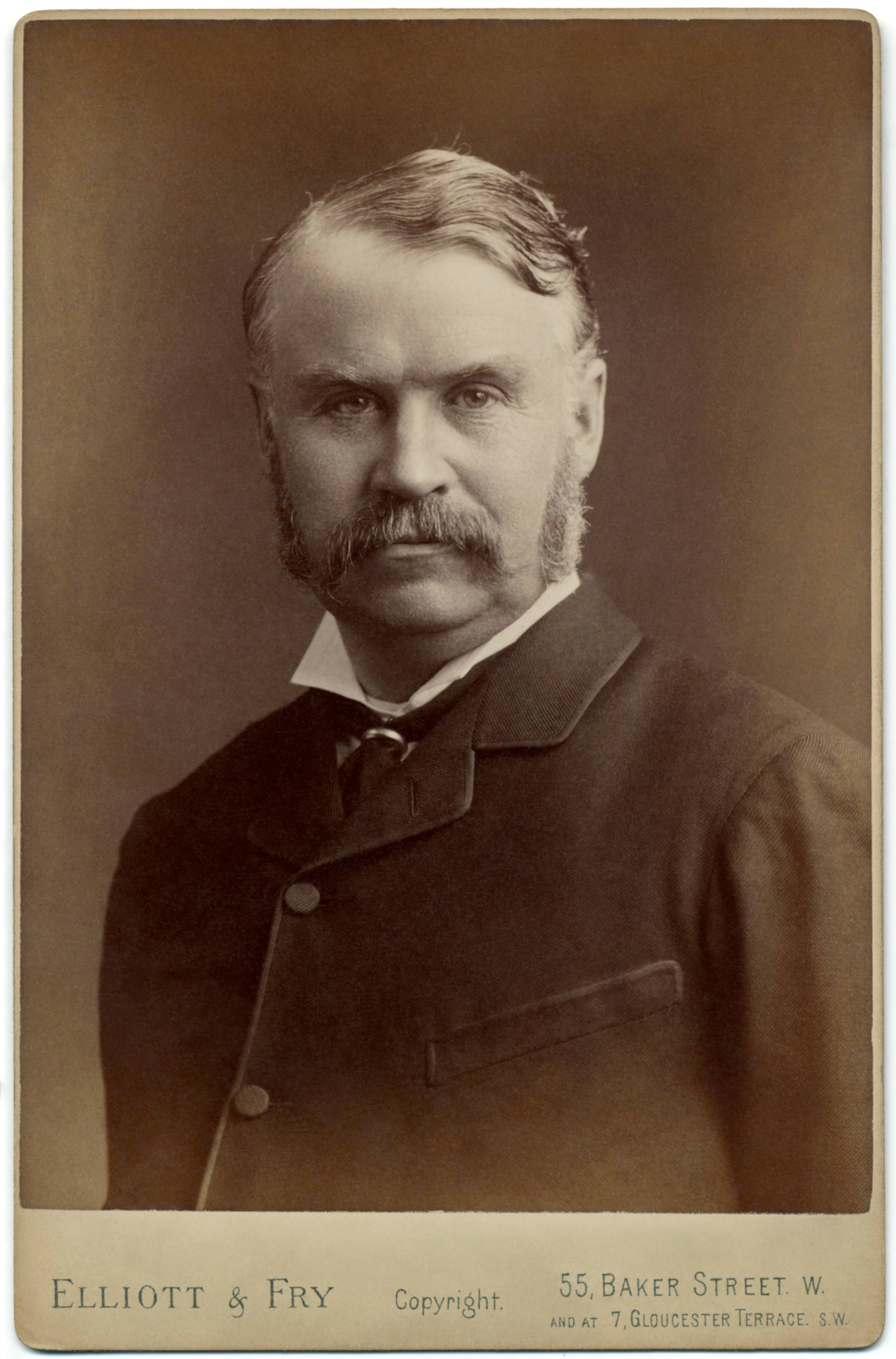PART I.
At a pleasant evening party I had taken down to supper
One whom I will call ELVIRA, and we talked of love and TUPPER,
MR. TUPPER and the Poets, very lightly with them dealing,
For I've always been distinguished for a strong poetic feeling.
Then we let off paper crackers, each of which contained a motto,
And she listened while I read them, till her mother told her not to.
Then she whispered, "To the ball-room we had better, dear, be walking;
If we stop down here much longer, really people will be talking."
There were noblemen in coronets, and military cousins,
There were captains by the hundred, there were baronets by dozens.
Yet she heeded not their offers, but dismissed them with a blessing,
Then she let down all her back hair, which had taken long in dressing.
Then she had convulsive sobbings in her agitated throttle,
Then she wiped her pretty eyes and smelt her pretty smelling-bottle.
So I whispered, "Dear ELVIRA, say, what can the matter be with you?
Does anything you've eaten, darling POPSY, disagree with you?"
But spite of all I said, her sobs grew more and more distressing,
And she tore her pretty back hair, which had taken long in dressing.
Then she gazed upon the carpet, at the ceiling, then above me,
And she whispered, "FERDINANDO, do you really, REALLY love me?"
"Love you?" said I, then I sighed, and then I gazed upon her sweetly
For I think I do this sort of thing particularly neatly.
"Send me to the Arctic regions, or illimitable azure,
On a scientific goose-chase, with my COXWELL or my GLAISHER!
"Tell me whither I may hie me tell me, dear one, that I may know
Is it up the highest Andes? down a horrible volcano?"
But she said, "It isn't polar bears, or hot volcanic grottoes:
Only find out who it is that writes those lovely cracker mottoes!"
PART II.
"Tell me, HENRY WADSWORTH, ALFRED POET CLOSE, or MISTER TUPPER,
Do you write the bon bon mottoes my ELVIRA pulls at supper?"
But HENRY WADSWORTH smiled, and said he had not had that honour;
And ALFRED, too, disclaimed the words that told so much upon her.
"MISTER MARTIN TUPPER, POET CLOSE, I beg of you inform us;"
But my question seemed to throw them both into a rage enormous.
MISTER CLOSE expressed a wish that he could only get anigh to me;
And MISTER MARTIN TUPPER sent the following reply to me:
"A fool is bent upon a twig, but wise men dread a bandit,"
Which I know was very clever; but I didn't understand it.
Seven weary years I wandered Patagonia, China, Norway,
Till at last I sank exhausted at a pastrycook his doorway.
There were fuchsias and geraniums, and daffodils and myrtle,
So I entered, and I ordered half a basin of mock turtle.
He was plump and he was chubby, he was smooth and he was rosy,
And his little wife was pretty and particularly cosy.
And he chirped and sang, and skipped about, and laughed with laughter hearty
He was wonderfully active for so very stout a party.
And I said, "O gentle pieman, why so very, very merry?
Is it purity of conscience, or your one-and-seven sherry?"
But he answered, "I'm so happy no profession could be dearer
If I am not humming 'Tra! la! la!' I'm singing 'Tirer, lirer!'
"First I go and make the patties, and the puddings, and the jellies,
Then I make a sugar bird-cage, which upon a table swell is;
"Then I polish all the silver, which a supper-table lacquers;
Then I write the pretty mottoes which you find inside the crackers."
"Found at last!" I madly shouted. "Gentle pieman, you astound me!"
Then I waved the turtle soup enthusiastically round me.
And I shouted and I danced until he'd quite a crowd around him
And I rushed away exclaiming, "I have found him! I have found him!"
And I heard the gentle pieman in the road behind me trilling,
"'Tira, lira!' stop him, stop him! 'Tra! la! la!' the soup's a shilling!"
But until I reached ELVIRA'S home, I never, never waited,
And ELVIRA to her FERDINAND'S irrevocably mated!
Ferdinando And Elvira; Or, The Gentle Pieman
William Schwenck Gilbert
Suggested Poems
Explore a curated selection of verses that share themes, styles, and emotional resonance with the poem you've just read.
